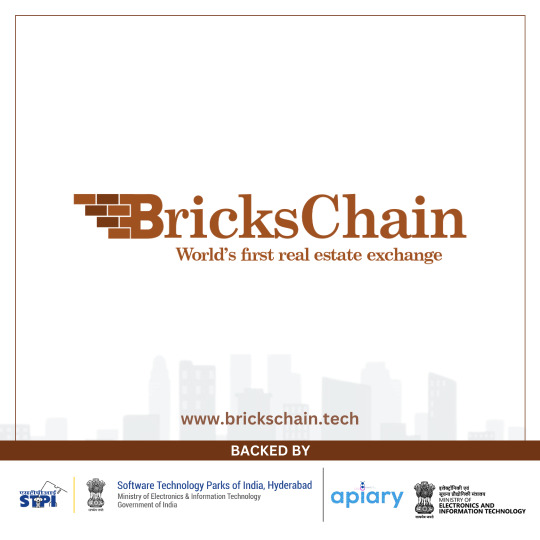#Fractional Ownership Real Estate
Text
Fractional Ownership Real Estate | Equity Address

Discover the benefits and intricacies of fractional ownership real estate with our comprehensive guide. Explore the concept of shared property ownership, where investors collectively own a portion of a desirable real estate asset. Whether you're looking to invest in luxury vacation homes, commercial properties, or prime residential estates, fractional ownership offers a unique opportunity to enjoy the advantages of property ownership without bearing the full financial burden.
0 notes
Link
#propfynd#real estate#investmemnt#residential property#commercial property#invest in india#Fractional Ownership#Real Estate Development
6 notes
·
View notes
Text
Purpose and Example of Fractional Ownership in Real Estate Industry
Interested in high-value real estate investments without the hefty price tag? Learn how fractional ownership in real estate allows multiple investors to co-own premium properties, making luxury real estate more accessible. Discover real-life examples and understand the purpose and advantages of this growing investment model in the real estate industry.
Read the full blog on iRealty247 now!

0 notes
Text
Why Fractional Investment?
A New Era of Real Estate Ownership
#Real Estate Investment#real estate#property#fractional investment#fractional ownership#fractional ownership in Noida
0 notes
Text
2024 Tokenization Boom: A New Era for Real-World Assets

In 2024, the landscape of real-world asset (RWA) tokenization is experiencing a transformative shift, marking a significant milestone in the financial industry. Tokenization converts physical assets like real estate, commodities, and art into digital tokens on a blockchain, enhancing liquidity, accessibility, transparency, and security. This revolutionary technology makes high-value assets more accessible to a broader range of investors. As we explore the current state and future prospects of tokenization, it is clear that this technology is set to reshape the global financial ecosystem significantly.
Tokenization is predicted to be a multi-trillion-dollar opportunity by 2030, with market estimates suggesting it could reach up to $16 trillion. The United States is leading this revolution, followed by countries like Singapore, the United Kingdom, Switzerland, India, and Luxembourg.
The total value locked in tokenized assets has surged to $10.53 billion, with major financial institutions launching tokenized investment products. This signals a major inflection point for the industry, underscoring the significant role tokenization will play in the future of finance.
The benefits of tokenization are extensive. It allows for fractional ownership, increasing liquidity and enabling investors to buy and sell portions of an asset. This democratizes investment opportunities and bridges the gap between traditional and digital financial markets. Tokenization also reduces transaction costs by eliminating intermediaries and automating processes through smart contracts.
As regulatory frameworks evolve and technology advances, tokenization is set to revolutionize the financial industry. Intelisync provides cutting-edge RWA tokenization services to help you navigate and capitalize on this financial Learn more....
#metaverse development company#blockchain development companies#web3 development#blockchain development services#metaverse game development#24/7 Market Access#Access to Real-World Yields#Asset Classes in Tokenization#Benefiting Blockchains#CeFi and DeFi tokenization#CeFi-Based Tokenization Protocols#Commodities#Common Combinations#Credit & Loans#Current Trajectory#DeFi protocols#DeFi-Based Tokenization Protocols#Diverse Asset Classes#Dominance of the U.S.#Emerging Trends#Enhanced Liquidity#Ethereum’s Prominence#Fractional Ownership#Leading Geographies#Leading Geographies in Tokenization#Less Popular Asset Classes#Performance of DeFi Protocols#Popular Asset Classes#Private Credit#Real Estate
1 note
·
View note
Text
#fractional ownership#real estate investment#investment property#commercial real estate#India real estate#timeshare vs fractional ownership#REIT vs fractional ownership#property management#rental income
0 notes
Text
Investments Professional | Rental Income Properties Investment
Unlock your financial potential with expert guidance on rental income properties investment from our seasoned investment professionals. Discover lucrative opportunities, strategic insights, and valuable resources to maximize returns. Start building your wealth today with our comprehensive investment strategies tailored to your goals.
Contact our Investment Professional today: Visit website now - Finplify.
Call now for more details - +91 8904164343
#Properties with rental income#Fractional Ownership#Direct Ownership into Grade A Assets#real estate passive income
0 notes
Text
Is Fractional Ownership for Sale Right for Your Investment?

Fractional ownership for sale is a distinctive investment approach that has gained prominence in recent years, offering potential investors a unique avenue to diversify their portfolios. The concept revolves around shared ownership of high-value assets, such as real estate, where investors purchase a fraction of the property rather than the entire asset. This allows individuals to access premium properties that might otherwise be financially out of reach.
One key advantage of fractional ownership is the reduced financial burden on individual investors. By pooling resources with others, investors can collectively own a share of a valuable asset, mitigating the upfront costs and ongoing expenses associated with sole ownership. This makes fractional ownership an attractive option for those seeking exposure to premium real estate without the hefty price tag.
Furthermore, fractional ownership provides investors with the flexibility to choose assets that align with their investment goals. Whether it's residential or commercial real estate, investors can diversify their holdings across different types of properties, potentially minimizing risk and optimizing returns.
Enterprises like Strataprop play a crucial role in facilitating fractional ownership for sale. Strataprop serves as a platform that connects investors with fractional ownership opportunities, streamlining the investment process. Through their innovative approach, Strataprop aims to make high-value assets accessible to a broader audience, democratizing investment in real estate.
In conclusion, when contemplating investment strategies, fractional ownership for sale merits consideration for its potential to democratize access to premium assets and diversify investment portfolios. Platforms like Strataprop provide a gateway for individuals to explore this innovative approach, opening doors to a world of investment opportunities previously reserved for a select few.
Know More: https://strataprop.com/
Address :—
Bengaluru — 6/1–1, Museum Rd, Shanthala Nagar, Ashok Nagar, Bengaluru, Karnataka 560001
Pune — 6th Floor, The Kode, Baner-Pashan Link Road, Pune, Maharashtra 411021
Mumbai — Parinee Crescenzo 10th Floor — B Wing, Bandra Kurla Complex, Mumbai, Maharashtra 400051
0 notes
Text
Best Fractional Ownership Platform

1 note
·
View note
Text
#property investment#fractionalownership#real estate investing#property uk#buytolet#fractional ownership investment
1 note
·
View note
Text
Why Fractional Ownership is Future of Holiday Homes? | BRIKitt
Read how fractional ownership can be the future of real estate industry. Click here to understand how fractional ownership stands out in real estate industry.
0 notes
Text
Why Fractional Real Estate Is Gaining Popularity Among Luxury Vacation Home Buyers

With the average vacation home being occupied for just 11% of the year, homeowners have to worry about upkeep and maintenance on the property they do not use for a significant portion of the year.
These costs have made vacation homes become an expensive investment due to the maintenance, cleaning and security costs.
Fractional Real Estate not only solves the recurring problem of caring for a vacation home when it’s not in use but also generates passive income for investors. As a result, making Fractional Real Estate an appealing option to Vacation Home Buyers.
In this article we will examine:
What Fractional Real Estate is
Types of Fractional Real Estate Ownership Structures
Why Fractional Real Estate Is Becoming Very Appealing To Luxury Vacation Home Buyers
What Fractional Real Estate is?
Fractional real estate, also known as fractional ownership or shared ownership, is a form of property ownership where multiple individuals share the ownership of a property, usually a vacation home or a luxury second-home. Each owner owns a percentage of the property, and they share the use and expenses of the property according to their ownership percentage.
The introduction of tech-oriented fractional real estate platforms has totally digitalized the ownership process, making ownership a seamless one. It is estimated that over the next three years, the fractional real estate market will be worth over five billion dollars.
Types of Fractional Real Estate Ownership Structures
There are several types of fractional real estate ownership structures available in the market. Here are some of the most common ones:
1. Timeshares: Timeshares are a type of fractional ownership where the property is divided into a specific number of time intervals, usually a week, and each owner is assigned a specific time period each year to use the property.
2. Equity Sharing: In an equity sharing structure, owners own a percentage of the property, and their ownership stake appreciates or depreciates based on the property’s value. Equity sharing can be structured as a co-ownership or as a tenancy in common.
3. Private Residence Club: A private residence club is a luxury fractional ownership structure that allows owners to purchase deeded ownership in a high-end resort or a private residence. The club typically provides owners with exclusive access to amenities and services.
4. Destination Clubs: Destination clubs are a form of fractional ownership that provides access to a portfolio of luxury properties in various locations. Members pay an annual membership fee to access the properties, and they can use them for a set number of days each year.
5. Condominiums: Condominiums are a type of fractional ownership where each individual owns a specific unit in a multi-unit building. Owners are typically responsible for maintaining their own unit, while the building owner or management company is responsible for common areas.
Why Fractional Real Estate Is Becoming Very Appealing To Luxury Vacation Home Buyers
Fractional real estate has been gaining popularity among high net worth individuals, luxury second-home buyers, and vacation home buyers for several reasons:
Cost Savings: Fractional ownership allows individuals to enjoy the benefits of owning a luxury property at a fraction of the cost of buying it outright. Since the cost of a vacation home or luxury second-home can be prohibitively expensive for most individuals, fractional ownership provides an affordable alternative.
Flexibility: Fractional ownership allows individuals to own a property without the hassles and responsibilities of full-time ownership. Owners can use the property when they want and rent it out when they don’t need it, generating rental income to offset the costs of ownership.
Diversification: Fractional ownership allows individuals to diversify their real estate portfolio without having to invest in multiple properties. They can own a percentage of several luxury properties in different locations, reducing their exposure to market risks and increasing their chances of generating rental income.
Shared Amenities: Fractional ownership allows owners to share the cost and use of amenities that would otherwise be too expensive to maintain or use on their own, such as a private beach, a golf course, or a pool.
Hassle-free management: Fractional ownership comes with professional property management services, which handle all the day-to-day maintenance and management of the property, making ownership hassle-free.
Overall, fractional real estate offers a unique opportunity for high net worth individuals, luxury second-home and vacation home buyers to own a piece of luxury real estate without the high cost and hassle of full-time ownership.
If you’re searching for high-yield Fractional Real Estate Investment Opportunities, at RealEstateMoses you get access to exclusive projects that offers property maintenance, administration and marketing services in Africa, North America, Asia and Europe.
For more info contact RealEstateMoses- https://linktr.ee/realestate_moses
0 notes
Text
What Is Fractional Ownership, Direct Ownership and Indirect Ownership and It’s Differences

Investing in real estate entails buying, holding, and selling real estate in order to make money. It’s a well-liked option for investors because of its potential for long-term growth, reliable cash flow from rental income, and advantages for diversification. Land, commercial buildings, industrial spaces, and residential properties are all considered forms of real estate. Thorough market research, a grasp of property valuations, and efficient risk and expense management are necessary for successful real estate investing.
Learn here differences between fractional ownership, direct, and indirect ownership in real estate. Learn investment options, control, and income potential to make informed decisions with iRealty247.
Click here: https://www.irealty247.com/blog/fractional-ownership-direct-indirect-ownership-differences/
0 notes
Text
Fractional Ownership in Real Estate | hBits
The market leader for fractional ownership in real estate investment is hBits. It is a form of percentage ownership that enables numerous unconnected persons to own "fractions" of an extremely valuable tangible asset and share in its returns and capital growth.
0 notes
Text
The Good Things About Fractional Real Estate Investing | Yield Asset
One of the tried-and-true ways to get rich is to invest in real estate. The average millennial millionaire owns three properties, according to a study.
Previously, it has never been easy for the average person to get into real estate. People like you can now invest in real estate through crowdfunded or fractional property ownership. And you only need a dollar to do it.
What Is Fractional Real Estate Investment?
Real estate that is owned by more than one person is called "fractional real estate." Timeshares are a great example of a type of real estate model called "fractional."
People own a certain week of the year at a vacation property through timeshares. But owning a timeshare is not even close to being an investment. Some people may think that owning a timeshare is more of a liability than an asset because of the ongoing fees and low resale values.
But fractional ownership India isn't just limited to timeshares anymore. The fractional model is used by a lot of online crowdfunding sites to let more people invest in high-cost projects. A typical wage earner might never be able to buy an apartment building with 50 units or a retirement community.
Benefits of Investing in Fractional Real Estate
It's easier to get into than traditional investments in real estate.
In the past, it was very hard for people to get into real estate investments because they needed good credit and a big down payment to buy a property. Plus, investors needed to know how to buy and finance the property, which was a complicated process. Fractional real estate investment, on the other hand, can be much easier to do.
Diversification within an asset class.
Many people who own property also own at least one property that is not their main home. If the property doesn't make enough money or goes down in value, they don't have any other properties that do better to make up for it. After all, most college students and young professionals may not be able to afford even a 5% down payment. If you are lucky, your parents might be willing to help you buy a house.
If an investor chooses fractional real estate, they may be able to build a diverse portfolio of real estate with a small initial investment. Smart investors can also make sure that their portfolio is spread out across different countries and types of investments.
Use "leverage" without taking huge risks with your own credit.
Most of the real estate crowdfunding sites use leverage (or debt) as a way to invest. On any of these sites, debt can be used to pay for 50–75% of a typical investment. This is less risky than buying a primary home, which usually only needs 5% down or less.
Most people who invest in real estate have to take on the risk that comes with that debt on their own. But fractional investors don't take risks with their own credit. If an investment doesn't work out, the person who put money into it may lose some of it. But they won't have to pay for debts that aren't paid, and their credit will not suffer.
No worries about taking care of real estate.
People may not want to invest in real estate because they don't want to deal with problems like a clogged toilet at midnight. With fractional real estate, property maintenance is taken care of by professionals, and both management and investments are completely hands-off.
Diversify outside of the financial markets.
Real estate has been a good way for investors to keep and grow their wealth for a long time. Most of the time, investors buy real estate as a way to "balance out" the risk of the stock market.
Even when the stock market is in a bear market, real estate can often still bring in money. You can diversify your passive income portfolio by holding real estate, stocks and bonds.
Fractional real estate investment may reduce the complexity and danger of traditional real estate investing. But before you buy fractional real estate, you should know what role it will play in your portfolio.
0 notes
Text

This #RavidasJayanti, let's ponder over the wisdom and teachings of Sant Ravidas Ji, whose message of love, compassion, and equality continues to ignite our quest for a fairer world.
May his insights illuminate our path forward!
#ravidassjayanti#gururavidassji#shrigururavidassji#satgururavidassji#india#ravidassia#ravidassiacrew#ravidassji#jaibhim#guru#jairavidass#fractionalownershipinindia#commercialrealestate#realestate#havendaxa#commercial fractional ownership#commercial property#investment#fractional ownership#commercial real estate development#fractionalownership#commercial real estate investment
0 notes